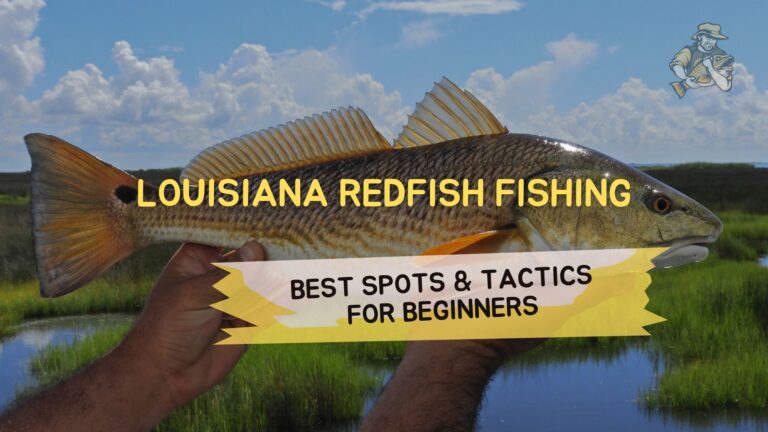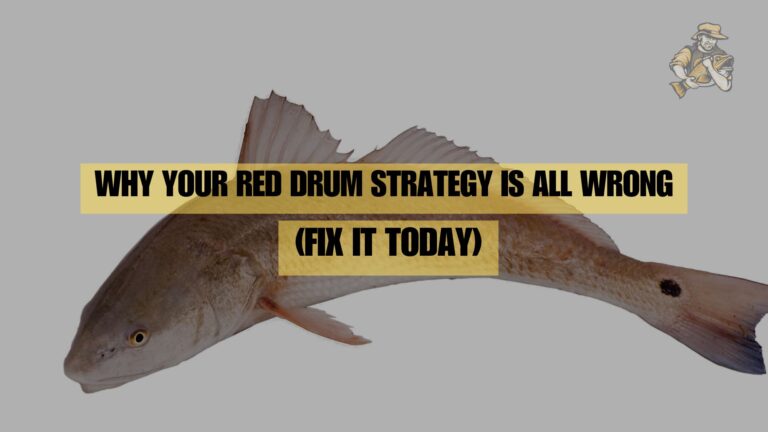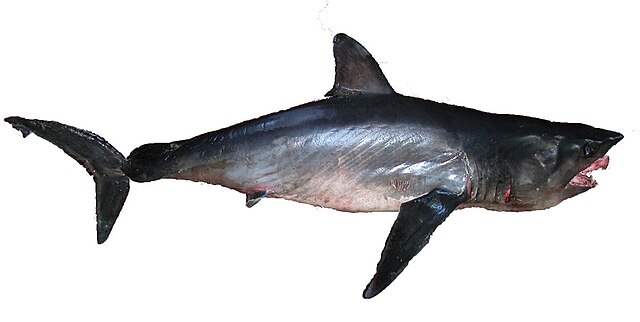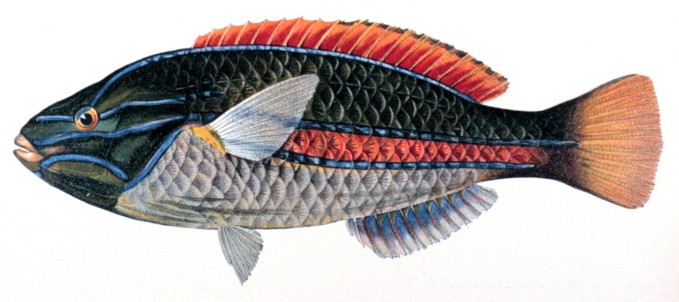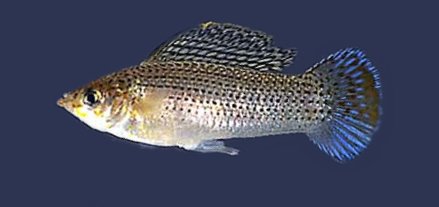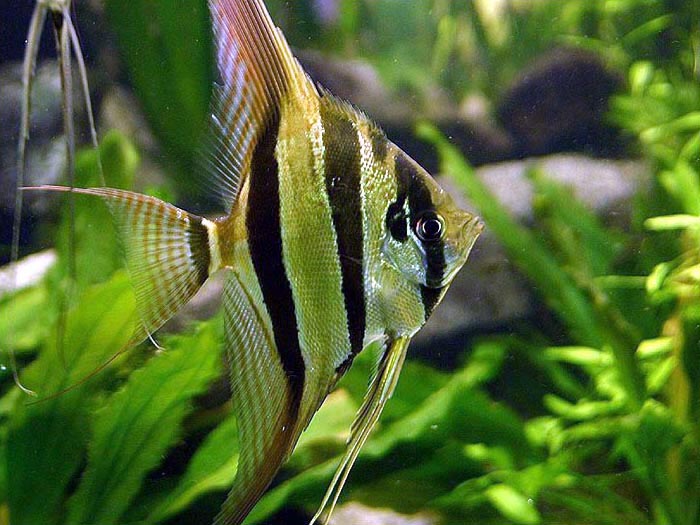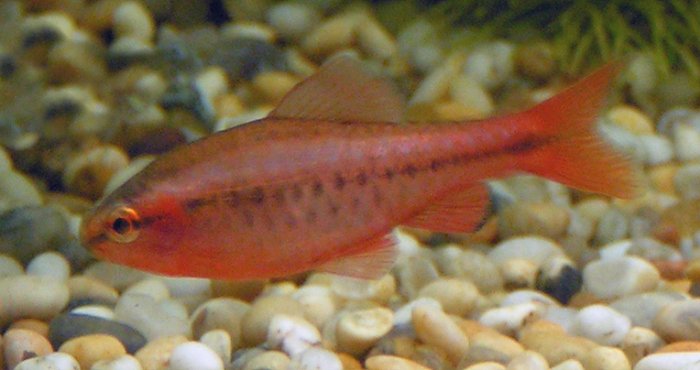Texas Fishing License Guide: 2025 Costs & Requirements
By Adam Hawthorne | Last Modified: April 29, 2025
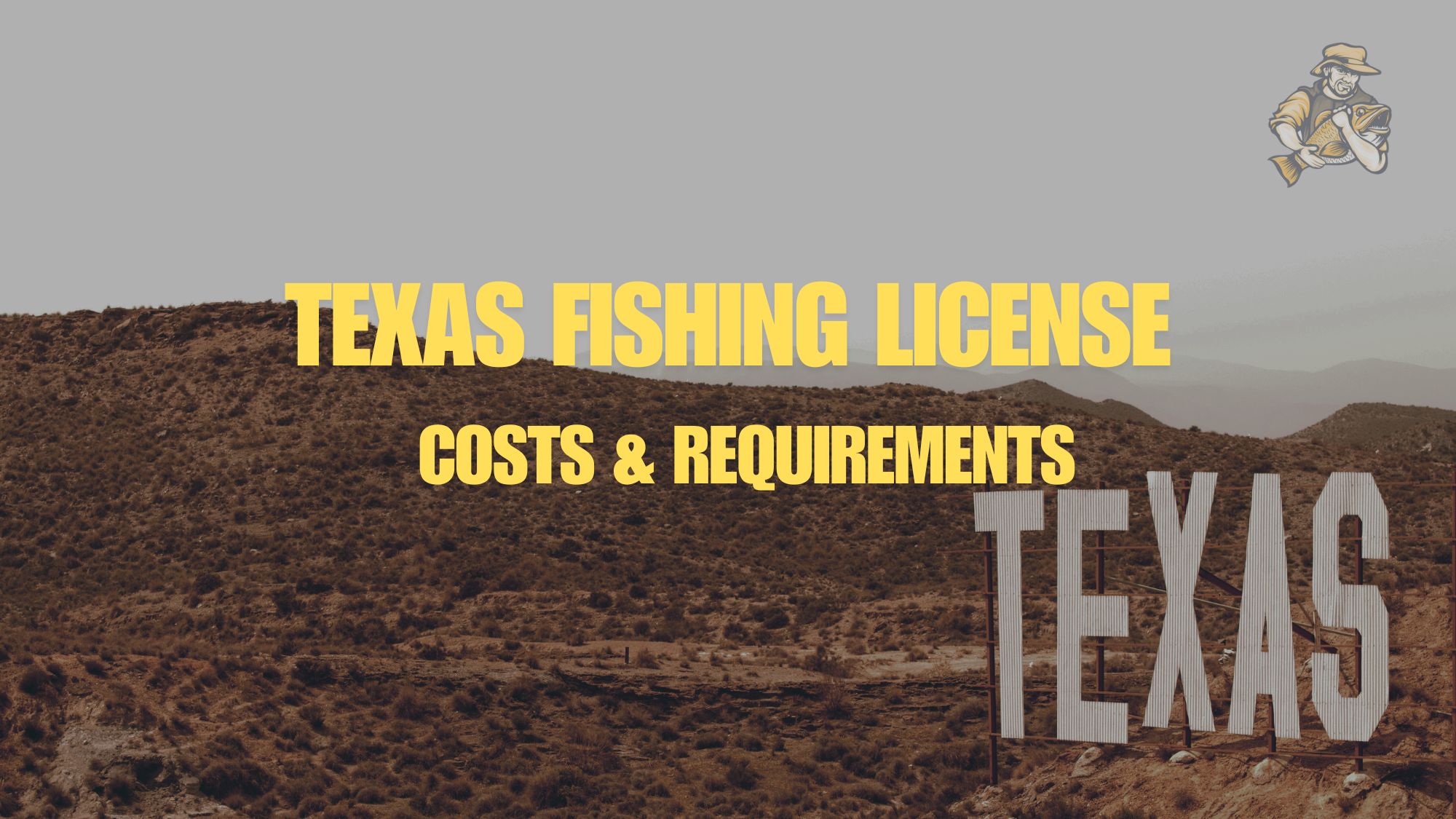
I still remember the day a Texas game warden approached me on Lake Texoma while I was reeling in a decent-sized striper. He asked for my fishing license, and my stomach dropped – I’d left it in my other tackle box. That $175 fine taught me to always keep my license handy.
Over my 30+ years fishing Texas waters from the Panhandle down to South Padre, I’ve purchased just about every type of fishing license the Lone Star State offers. Sometimes I’ve bought licenses I didn’t actually need (like that time I purchased both a freshwater and saltwater package when the all-water license would’ve been cheaper).
Let me break down everything you need to know about Texas fishing licenses in 2025 so you can avoid my mistakes and get on the water legally.
Texas Fishing License Basics: What You Actually Need
The Texas Parks and Wildlife Department (TPWD) offers several license options depending on your situation. Understanding the differences can save you money and frustration.
First, almost everyone between 17 and 84 years old needs a license to fish in public waters in Texas. There are a few exceptions I’ll cover later, but generally, if you’re dropping a line in public water, you need that license.
What confuses a lot of folks is that Texas divides its licenses by water type:
- Freshwater: For lakes, rivers, ponds, and streams
- Saltwater: For bays, Gulf waters, and connected waters
- All-Water: Covers both fresh and saltwater (best value if you fish both)
My fishing buddy Marco learned this distinction the expensive way when we took a trip from Lake Conroe (freshwater) down to Galveston Bay (saltwater) in the same weekend. His freshwater-only license didn’t cover the saltwater fishing, and it cost him a $150 fine.
Resident vs. Non-Resident Licenses (Big Price Difference)
Texas differentiates between:
- Residents: Anyone who’s lived in Texas for at least 6 consecutive months
- Non-Residents: Visitors or folks who haven’t established residency
The price differences are substantial. When my cousin visits from Oklahoma, he pays nearly triple what I do for the same license. If you’re military personnel or a student, there are special provisions to qualify for resident rates – worth checking if you’re in either category.
License Duration Options
Fishing licenses in Texas come in different time periods:
- Annual: Valid from date of purchase through August 31 (Texas fishing licenses always expire August 31, regardless of when you buy them)
- 1-Day All-Water: Valid for a 24-hour period
- Year-from-Purchase: Some licenses are valid for 365 days from purchase date
One thing that trips up many visitors – the 1-day licenses start the moment you buy them, not when you first use them. My fishing partner Dave bought a 1-day license the evening before our morning trip without realizing it would expire before we were done fishing the next day.
Texas Fishing License Costs for 2025
Here’s what you can expect to pay for Texas fishing licenses in 2025:
Resident License Fees
License TypeDescriptionCostFreshwater PackageFreshwater fishing only$30Saltwater PackageSaltwater fishing only$35All-Water PackageBoth fresh and saltwater$40Senior Freshwater (65+)Freshwater fishing for seniors$12Senior Saltwater (65+)Saltwater fishing for seniors$17Senior All-Water (65+)Both fresh and saltwater for seniors$221-Day All-Water24-hour license for all water types$11
Non-Resident License Fees
License TypeDescriptionCostFreshwater PackageFreshwater fishing only$58Saltwater PackageSaltwater fishing only$63All-Water PackageBoth fresh and saltwater$681-Day All-Water24-hour license for all water types$16
I usually opt for the All-Water package since I fish both types throughout the year. When I was younger and on a tighter budget, I would sometimes just get the freshwater license and then add 1-day licenses for my occasional saltwater trips.
Stamp Requirements That Confuse Everyone
Here’s where it gets tricky – Texas requires additional “stamps” for certain types of fishing, and these are usually (but not always) included in the packages above.
- Freshwater Fishing Stamp: Required for freshwater fishing (included in freshwater and all-water packages)
- Saltwater Fishing Stamp: Required for saltwater fishing (included in saltwater and all-water packages)
- Red Drum Tag: For keeping oversized red drum (included with saltwater and all-water packages)
The system is designed so that most anglers won’t need to buy these separately, but it’s worth double-checking when you purchase. When I bought my license online last year, I almost missed that the Red Drum Tag wasn’t automatically included with my specific license type.
Hidden Costs and Fees You Might Not Expect
In addition to the advertised prices, be aware of:
- Transaction Fee: A $5 fee is added to most license purchases
- Additional Red Drum Tags: If you catch and keep a tagged oversized red drum, you’ll need to purchase a bonus tag ($3) for any additional oversized reds
When I took my son Tommy for his first license last summer (once he turned 17), we were surprised by these add-ons – the total came to about $8 more than I’d budgeted for.
How to Get Your Texas Fishing License (Multiple Methods)
There are several ways to get your license in Texas:
Online Purchase (Easiest for Most)
The Texas Parks and Wildlife online license system is the most convenient option. I usually buy mine while finishing my morning coffee before heading out to the lake. You’ll need:
- Driver’s license or state ID
- Social Security Number (last 4 digits)
- Credit/debit card
- Printer (for immediate use) or smartphone (to display digital license)
The system can be a bit glitchy during peak times like the week before September 1st (when new licenses become available). Last year I tried buying mine at midnight on August 31st along with apparently everyone else in Texas. The site crashed twice before my purchase went through.
You can print your license immediately or access a digital copy on your phone. I always do both – the paper copy stays in my waterproof license holder and the digital one’s a backup.
In-Person Retailers (Best for Last-Minute)
Many retail stores sell fishing licenses, including:
- Academy Sports + Outdoors (my go-to place)
- Walmart
- Bass Pro Shops/Cabela’s
- Most bait and tackle shops
- Some grocery stores like H-E-B
The tackle shop near my favorite spot on Lake Travis, “Hill Country Fishing Gear,” sells licenses and the owner Jim usually has good tips on where the fish are biting. The downside is limited hours – nothing like realizing at 10pm that your license expired and you’re planning a 5am fishing trip.
When purchasing in person, you’ll need:
- Driver’s license or state ID
- Payment method (some smaller shops may be cash only)
Through the TPWD Mobile App
Texas offers the “Outdoor Annual” mobile app that allows license purchases. I’ve used this a few times when I’ve been on the road and needed to quickly buy a license.
The app is convenient for:
- Purchasing licenses
- Storing digital copies of your license
- Checking regulations while on the water
- Reporting harvests for certain species
TPWD Offices
There are TPWD offices throughout the state where you can purchase in person. I rarely use this option since their hours (typically weekday business hours) don’t align well with fishing trips.
Who Doesn’t Need a Texas Fishing License?
There are several exemptions to the license requirements:
- Children under 17: They can fish without a license. I started taking my kids when they were young, and it was great to let them fish freely without the paperwork.
- Adults fishing on Free Fishing Day: Texas has one free fishing day each year (usually the first Saturday in June) where anyone can fish without a license. This is a great opportunity to introduce friends to the sport.
- Fishing on private property: If you’re fishing in a private pond or lake entirely on private property, and you’re either the landowner, a member of their immediate family, or have the landowner’s permission, you don’t need a license. This confused my neighbor who has a small pond that connects to a creek – since the water is connected to public waterways, he still needs a license despite owning the land.
- Texas residents born before January 1, 1931: They get to fish for free.
- Mentally disabled persons: Those who are mentally disabled and engaging in recreational fishing as part of medically approved therapy, or while under the supervision of a licensed therapist or healthcare provider.
- Veterans with disabilities: Texas residents who have a service-connected disability (as defined by the Veterans Administration) with a disability rating of at least 50% or as a result of the disability are receiving compensation from the VA. My friend Davis who served in Iraq qualifies for this exemption – he just needs to carry his paperwork proving his disability status.
Texas-Specific Regulations That Impact Your License
Beyond just having a license, there are some Texas-specific regulations that can trip you up.
Tagging Requirements
Some fish species require immediate tagging when caught and kept. These include:
- Oversized Red Drum: One per license year using the tag from your license
- Tarpon: These require a special trophy tarpon tag purchased before the catch
I almost got a citation back in 2022 when I caught a 42-inch red drum in Corpus Christi Bay and didn’t realize I needed to immediately attach my red drum tag to it. The game warden was understanding but gave me a stern warning.
Location-Specific Rules
Texas has special regulations for certain bodies of water. For example:
- Community Fishing Lakes: These smaller public lakes have different bag and length limits
- Border Waters: Special rules apply when fishing waters that border other states or Mexico, like Toledo Bend Reservoir or the Rio Grande
- State Park Waters: Sometimes require additional entry fees or permits
I learned about the border water regulations when fishing on Caddo Lake along the Texas-Louisiana border. Each state’s regulations apply to their respective portions of the lake, which can be confusing since there are no visible boundaries on the water.
Saltwater Fishing Guides
If you’re a fishing guide in saltwater, you need a special guide license in addition to your fishing license. These range from about $200-$500 depending on the type, and they’re strictly enforced.
My friend Marcus who runs a guide service in Port Aransas had to navigate a lot of paperwork to get properly licensed. He says the TPWD officials regularly check guides’ credentials at popular boat ramps.
Special Fishing Licenses and Situations
Lifetime Licenses
Texas offers lifetime fishing licenses – they’re expensive upfront but can be a good investment if you plan to fish for many years:
- Resident Lifetime All-Water: $1,000
- Resident Lifetime Freshwater: $800
- Resident Lifetime Saltwater: $800
I considered getting one of these for years, and finally pulled the trigger on my 40th birthday as a gift to myself. At $1,000 for the All-Water version, it paid for itself after about 25 years of annual licenses, and now I never have to worry about renewing.
One catch though – you still need to pick up a free red drum tag each license year if you plan to keep oversized reds.
Military Licenses
Active duty military members can purchase licenses at resident rates regardless of their actual residency status. Additionally, disabled veterans may qualify for free Super Combo licenses that include both hunting and fishing privileges.
My brother-in-law is stationed at Fort Hood but still has his official residence in Florida. He pays the resident rate for his Texas fishing license, which saves him about $30 annually.
Fishing Tournaments
Participating in a fishing tournament doesn’t exempt you from licensing requirements. Every angler needs their own valid license.
I participated in a bass tournament on Lake Fork last summer where the organizers checked everyone’s license during registration. Two guys were turned away because their licenses had expired the day before – they forfeited their $300 entry fee.
What Happens If You Fish Without a License in Texas
The consequences of fishing without a valid license in Texas are significant:
- Fines: Typically $125-$500 for a first offense, depending on the county
- Court Costs: Can add another $50-100
- Potential License Revocation: For repeat offenders
- Civil Restitution: Texas can charge you for the value of any fish illegally taken
Game wardens in Texas have a reputation for being thorough but fair. When my license had expired without me realizing it at Lake Somerville in 2021, the warden reduced my fine when I showed him I had purchased a new one online immediately after he cited me.
How Enforcement Actually Works
Texas Parks and Wildlife game wardens patrol regularly, especially in popular fishing areas. They’re fully commissioned peace officers with the same authority as state troopers.
In my experience, they tend to concentrate on:
- Popular fishing spots during peak seasons
- Boat ramps (where they can check multiple anglers efficiently)
- Areas with recent violations or complaints
- Holiday weekends when many casual anglers are out
I typically get checked 3-4 times per year, mostly when fishing well-known spots like Canyon Lake during summer weekends or Galveston piers during tourist season.
Wardens can check your license, count and measure your catch, and inspect your gear for compliance with regulations. They can also ask to see inside your coolers and storage compartments. Most are knowledgeable about fishing and can be great sources of information if you’re respectful.
Tips From 30+ Years of Buying Texas Fishing Licenses
After decades of fishing Texas waters, I’ve learned a few tricks:
- Buy Just After September 1st: Since all annual licenses expire August 31, buying in early September gives you a full year of coverage. I used to buy mine in July, effectively losing several months of value.
- Consider Your Fishing Habits: If you only fish 2-3 times a year, individual day licenses might be cheaper than the annual package.
- Take a Photo of Your License: The digital copy on your phone from TPWD is great, but cell service can be spotty in many great fishing spots. I take a photograph of my license as backup.
- Keep Multiple Copies: I keep a paper copy in each tackle box, one in my truck’s glove compartment, and a laminated one in my wallet. Seems excessive, but I’ve needed each one at different times.
- Combine with Hunting License for Savings: If you also hunt, the Super Combo license includes everything for both activities at a discount.
- Check License Before Every Trip: Get in the habit of verifying your license is current before heading out. I keep mine with my fishing gear so I always see it during preparation.
- Be Aware of Group Licenses: There’s no such thing as a “family” or “group” license – everyone 17 and older needs their own.
- Carry Supporting Documentation: For specialized license types (veteran, disabled, etc.), always carry supporting documentation.
My buddy Frank lost his printed license last year during a windy day at Lake Livingston. He had the digital version but no cell service. The game warden ended up looking him up in the system, but it delayed our fishing trip by almost an hour.
The Actual Process: Step by Step
Here’s exactly how to buy your license online, since that’s what most folks will do:
- Visit the Texas Parks and Wildlife Online License Sales website
- Create an account or log in if you already have one
- Select “Fishing Licenses” from the available options
- Choose your license type (freshwater, saltwater, or all-water)
- Add any additional needed endorsements or stamps if not included
- Provide your personal information (name, address, date of birth)
- Enter the last 4 digits of your SSN (required for verification)
- Pay with credit/debit card
- Print your license and/or save the digital version to your phone
The entire process takes about 5-10 minutes if you already have an account. First-timers might need 15 minutes to get through all the steps.
Texas Fishing License FAQs
Do I need a fishing license to fish from the shore or a pier? Yes, the license requirement applies regardless of whether you’re fishing from a boat, the shore, a pier, or wading. The only exception is during the annual Free Fishing Day.
If I have a saltwater license, can I also fish in freshwater? No, a saltwater-only license only covers saltwater fishing. If you want to fish in both environments, you need the all-water package or separate licenses for each.
If I’m just helping my kids fish but not fishing myself, do I need a license? This is a common misconception. If you’re actively fishing – meaning you’re casting, retrieving, or handling the rod while fish are being caught – you need a license. If you’re truly just baiting hooks or removing fish while the child does all the actual fishing, you technically don’t need one. But game wardens might interpret “helping” differently than you do, so it’s safer to have a license.
Do I need a Texas license to fish in the Gulf of Mexico? Yes, if you’re fishing in Gulf waters out to 9 nautical miles from the Texas shoreline. Beyond that, you’re in federal waters and need to comply with federal regulations, but you still need a Texas license as your port of departure/return is in Texas.
If I have a fishing license from another state, is it valid in Texas? No, each state requires its own license. There’s no reciprocity between Texas and other states. I keep separate tackle boxes with the appropriate state license when I fish across state lines in Louisiana or Oklahoma.
Can I get a refund if I buy the wrong license? Generally no. TPWD doesn’t issue refunds for license purchases except in very limited circumstances. When I accidentally bought a freshwater license instead of all-water in 2020, I just had to buy the saltwater endorsement separately.
Do seniors get discounted fishing licenses in Texas? Yes, Texas residents who are 65 years or older qualify for discounted Senior fishing license packages. My father-in-law just turned 65 and was pleasantly surprised to pay less than half what he paid the previous year.
Is there a license that covers both fishing and hunting in Texas? Yes, the Super Combo license includes both hunting and fishing privileges, along with all state endorsements and stamps. It’s a better value than purchasing them separately if you do both activities.
Final Thoughts on Texas Fishing Licenses
Getting your Texas fishing license isn’t complicated, but understanding the different options can save you money and headaches. I’ve purchased over 30 annual licenses (plus countless day licenses) over the years, and I still occasionally learn something new about the system.
The fees collected from fishing licenses directly support conservation efforts that keep Texas fisheries healthy and productive. When I think about all those licenses I’ve purchased, it’s a small price to pay for the incredible fishing opportunities this state offers.
Whether you’re chasing largemouth bass in East Texas, redfish along the coast, or trout in the Hill Country rivers, that license is your ticket to some of the best fishing in the country. And it’s a lot cheaper than the fine you’ll pay without one – trust me on that one.
The paperwork might be a pain, but when that fish hits your line, you won’t be thinking about your license at all – until a game warden approaches your boat. Then you’ll be mighty glad you’ve got it.

Meet Adam Hawthorne
I’m a lifelong fishing enthusiast who’s spent years exploring rivers, lakes, and oceans with a rod in hand. At Fishing Titan, I share hands-on tips, honest gear reviews, and everything I’ve learned about fish and ocean life, so you can fish smarter and enjoy every cast.
Share:

Meet Adam Hawthorne
I’m a lifelong fishing enthusiast who’s spent years exploring rivers, lakes, and oceans with a rod in hand. At Fishing Titan, I share hands-on tips, honest gear reviews, and everything I’ve learned about fish and ocean life, so you can fish smarter and enjoy every cast.
Related Articles
-
Louisiana Redfish Fishing: Best Spots & Tactics for Beginners
Finding that first bull red is a moment you never forget. The pull, the power – it’s something special. I’ve been chasing redfish (or red…
-
Why Your Red Drum Strategy Is All Wrong (Fix It Today)
Last October, I was fishing the eastern shore of Lake Michigan near Ludington with my buddy Mike. Cold front had just pushed through, water temperature…
-
Surfcasting Techniques: Master Beach Fishing and Catch More Fish
There’s something almost magical about standing at the edge of an ocean, rod in hand, as waves crash around your feet. I’ve been surfcasting for…
-
Longfin Mako Shark
The Longfin Mako Shark represents one of nature’s most enigmatic and misunderstood predators, embodying both the raw power and elusive nature that defines the ocean’s…
Fish Species
-
Rainbowfish
Rainbowfish represent one of the most visually striking and ecologically significant groups of freshwater fish found across Australia, New Guinea, and Indonesia. These vibrant schooling…
-
Black Molly
The Black Molly represents one of the most recognizable and enduring species in the freshwater aquarium trade, captivating both novice and experienced aquarists with its…
-
Angelfish
Angelfish represent one of the most recognizable and ecologically significant families of marine fish, encompassing over 85 species distributed across tropical and subtropical oceans worldwide….
-
Cherry Barb
The Cherry Barb (*Puntius titteya*) stands as one of the most recognizable and ecologically significant small cyprinid species in Southeast Asian freshwater ecosystems. Native to…

